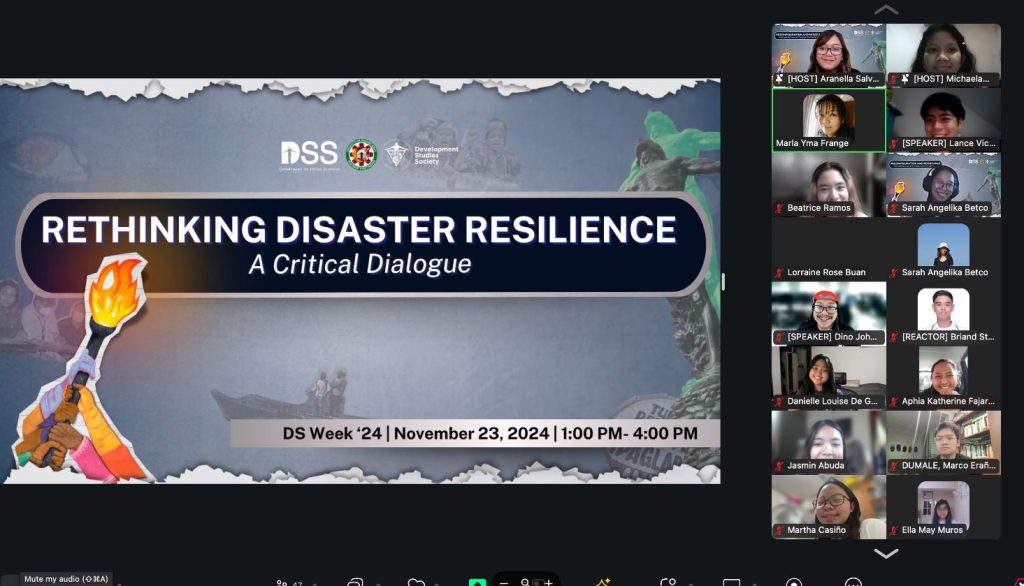
The University of the Philippines (UP) Resilience Institute (UP RI) – Nationwide Operational Assessment of Hazards (UP NOAH) Center participated in the Annual Development Studies Week of the Development Studies Program. The event is in commemoration of the 42nd founding anniversary of the Development Studies Program, under the Department of Social Sciences of the College of Arts and Sciences in UP Manila. It bears the theme “RECONFIGURATION AND RESISTANCE: Interrogating Crises and Forging Collective Agencies”. This week-long event was held from November 18, 2024, to November 22, 2024, and was presented by the Development Studies Society (DevSoc). Aside from the Development Studies Program students, Department of Social Sciences (DSS) Department Chair Prof. Ruth Legaspi and Dr. Ma. Josephine Teves, DevSoc’s Faculty Adviser, were present at the event.

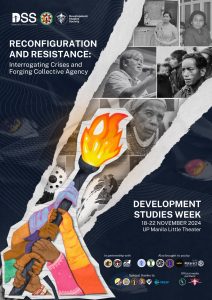
The event seeks to focus on the need to resist “unchangeable” power structures and at the same time invite critical analysis and reflections. A series of forums, student activities, and cultural events were conducted to help raise critical awareness and promote solidarity in the development community. UP RI was invited to present in one of the forums entitled Rethinking Disaster Resilience: A Critical Dialogue. The forum aims to impart a renewed perspective on Filipino resilience in times of disasters. Researchers from different academic fields and environments were invited to examine current disaster management practices and present more progressive disaster resilience strategies. Due to the class suspension on the day of the event, the forum was rescheduled for November 23, 2024, via Zoom.
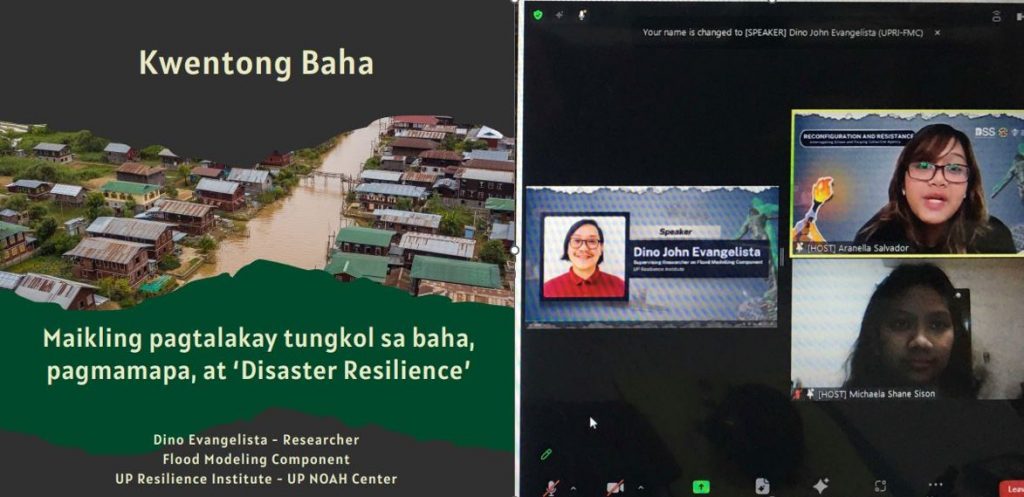
Mr. Dino Evangelista, from the Flood Modeling Component (FMC) of the UP RI – UP NOAH Center, was among the two speakers for the said forum. Along with him was Mr. Lance Vicher from the Institute for Nationalist Studies. Mr. Vicher discussed the Political Ecology of Disaster Risk Reduction and Management (DRRM) and Critique of Resilience.



Mr. Evangelista’s presentation entitled Kwentong Baha: Maikling Pagtalakay sa Baha, Pagmamapa, at “Disaster Resilience” discussed how the FMC helps improve disaster resilience through research, mapping, analysis, and planning. The first part of his discussion highlighted terminologies that should be clearly understood by the stakeholders. Some of the concepts briefly discussed were Watershed versus River Basin, the ‘life’ of a river, the definition of Disaster Risk, and the four (4) pillars of DRRM. Understanding these terms will help stakeholders realize that the presence of hazards does not necessarily mean a disaster. It was emphasized that there is nothing natural about a disaster, what is natural are hazards, thus encouraging the term ‘natural hazards’ instead of ‘natural disasters’ in order not to lose sight of who is truly accountable should disasters brought by natural hazards happen.
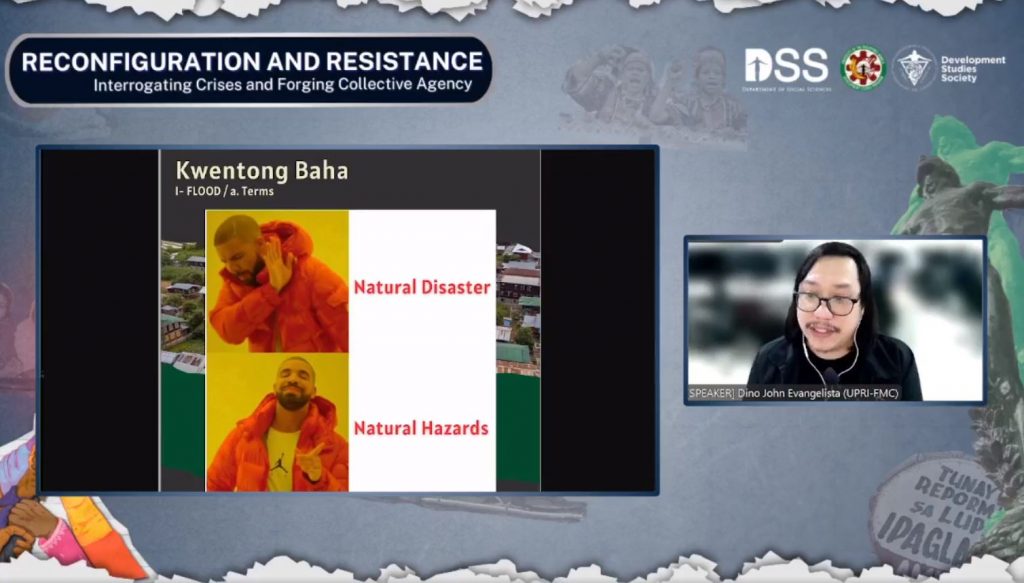
The presentation also highlighted the component’s use of a probabilistic data approach which assesses risk through current and future rainfall and flooding scenarios. A short discussion on one- and two-dimensional flood modeling and its integration, one of the new processes that the component uses, was also done just to encourage researchers from their respective fields to continue looking for different ways to obtain data and create analysis.

Mr. Evangelista also shared some key concepts on Geonarrative and Countermapping that the component employed to supplement conventional data-gathering methods such as focus group discussions (FGD), interviews, and surveys in the barangays. The discussion revolved around how improving community engagement plays an important role in obtaining quality information and improving disaster risk reduction. Participants’ recollections about their own experiences should be valued because this allows them to speak truth to power. These narratives are as vital as any Science-backed data as they are grounded on realities and emotions specific to the individual.
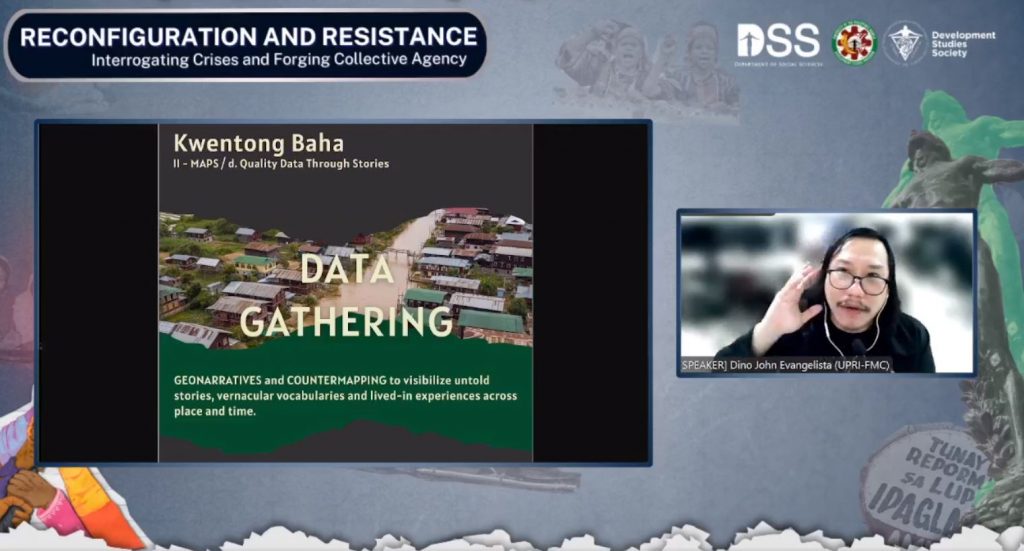
Mr. Evangelista ended the presentation by challenging the audience to find their roles in forging a progressive perspective on disaster resilience. He encouraged the students, researchers, and other professionals from the academia to continue helping educate the marginalized about the realities of natural hazards and their socio-economic impacts in a language that they understand. Continued collaboration with research institutes and the academe and the utilization of Participatory activities can also create an avenue for the marginalized to express their narratives and uphold their rights.
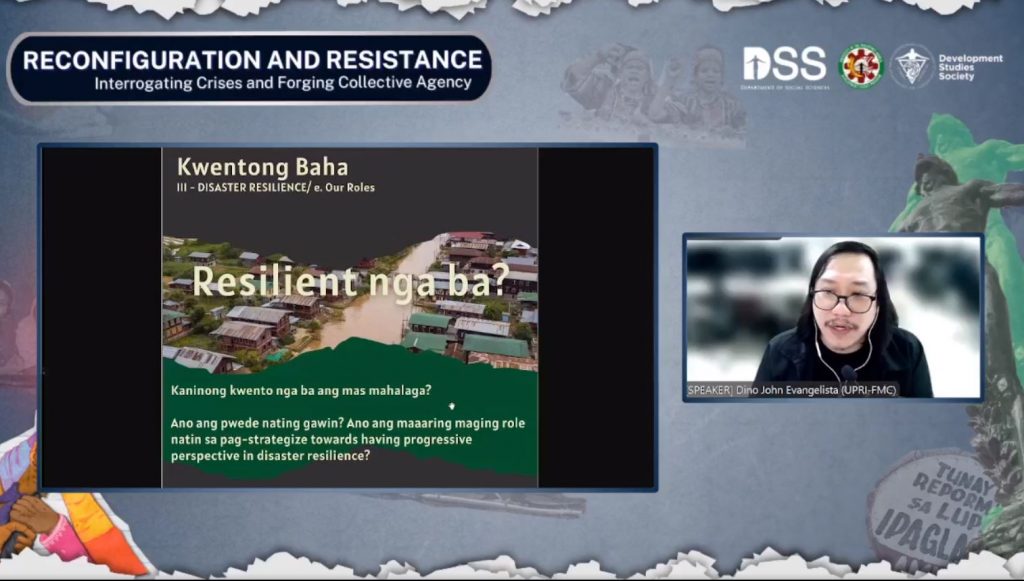
Researchers from the UP RI – UP NOAH Center have always believed that what they do in relation to disaster resilience is very important because, in the larger scale of things, the institute helps save lives. UP RI looks to continue to collaborate and strengthen collective bonds with the Development Studies communities, especially regarding the pressing global and local issues related to DRRM.
